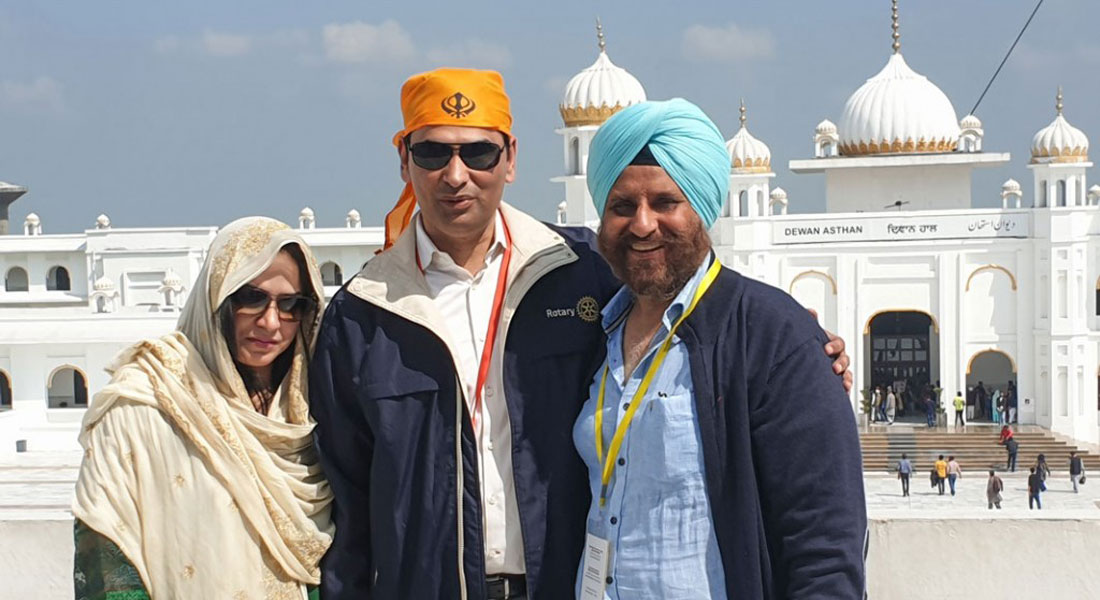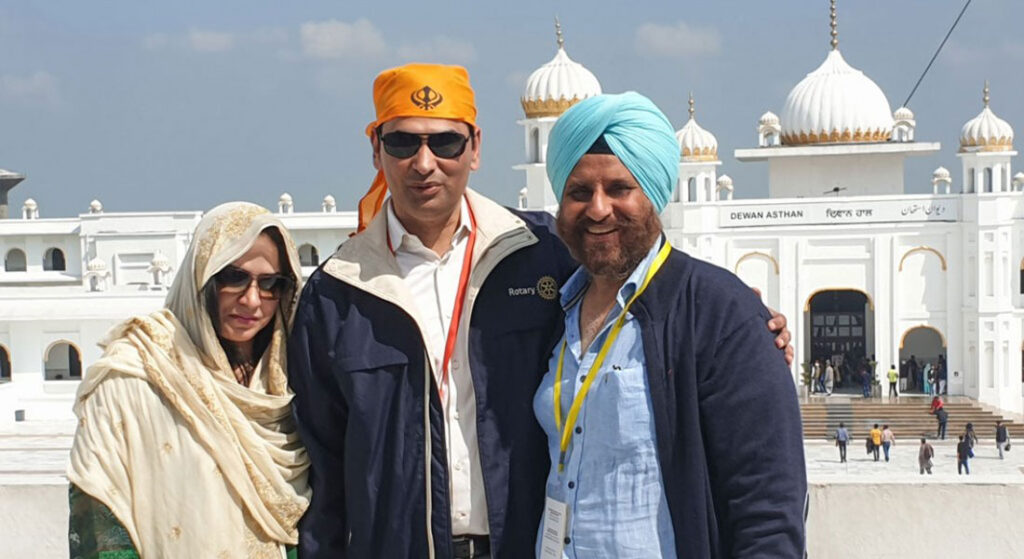
Rotarians of India and Pakistan met at the Kartarpur Sahib gurdwara in Lahore, Pakistan, in March this year, just before the cocona pandemic caused havoc in the world. “Around 50 Rotarians from nine Pakistan clubs, along with Rotaractors and Interactors, came to meet us at the gurdwara,” says PDG Upkar Singh Sethi, RID 3070.
It all began when Sethi and PDG Sajid Pervaiz, a member of RC Ruryila, RID 3272, Pakistan, discussed an initiative to further peace between the two countries when they met at the CoL in Chicago last year. “For me this was a long pending idea. In 2012–13 when the then RI president Sakuji Tanaka announced his theme, Peace through Service, as a serving governor I tried getting Pakistani Rotarians to attend our district conference. It did not happen due to visa restrictions. When we, as a delegation, planned to go to Lahore, our visas were also rejected,” says Sethi.
There have been other initiatives too for promoting Indo-Pak peace. A couple of years ago, Ravishankar Dakoju, past president of RC Bangalore Orchards, planned a rally from Bengaluru to Amritsar and put up a peace tower at Attari on the India-Pak border. Another initiative was a peace park to be set up by Rotarians of the two countries. These programmes could not be realised due to various reasons.”
This meeting of Rotarians of both the countries was “a defining moment” for Sethi and Pervaiz. One of the reasons was the venue, Kartarpur Sahib, a holy site for Sikhs. Because of the tensions between the two countries, it had been difficult for Sikhs in India to visit the shrine, until in 2018, the Pakistan government opened up a corridor so pilgrims from India could visit the shrine visa-free.
A delegation of 20 Rotarians from RC Amritsar South led by Sethi reached the India-Pak border from where they boarded a bus to the gurdwara, a majestic structure across River Ravi. “It was an exciting experience. We had food at the langar together at the gurdwara.” The host Rotarians gifted kirpans, one of the five Sikh articles of faith, to the Indian Rotarians. “It symbolises the obligation of every Sikh to the ideals of generosity, compassion and service to humanity,” he explains.
Some children had accompanied the Pakistani Rotarians. “We were an interesting spectacle for them. I wish we had taken our children with us. It is a learning for them. The general perception in both countries is one of enmity to each other. In reality that is not true. We enjoyed each other’s company. Political differences and boundaries keep us apart,” says Sethi.
Lahore is 40km from Amritsar and the gurdwara, just 3km from the zero-line. Sethi, a resident of Amritsar for over 60 years, recalls going over to Lahore in his younger days to watch a cricket match. “The nearest town in India for me is Jalandhar. But it is farther than Lahore. If I travel 30km this side I will be in Pakistan. I really wish we could just walk through,” he says.
Mythology
Sethi relates a tale connected with the shrine. Guru Nanak, founder of Sikhism, settled at this site and assembled the first Sikh community in the 16th century. When he died, the Sikhs and the Muslims claimed him to be their guru and wanted to perform the final rites in accordance with their tradition. “The myth is that they found only flowers, instead of his mortal remains, under the cover. So half of the flowers were buried and the other half were cremated.” Both the sites — where he was cremated and buried —are present in the gurdwara complex.

After the pandemic settles and normalcy returns, Sethi wants to take a larger delegation to meet the Pakistani Rotarians.
“Being from Pakistan, I have seen how the tensions between my country and India have disrupted harmonious relationships. This was a unique friendship and goodwill visit across the border. We really enjoyed meeting and interacting with Rotary families from India.








